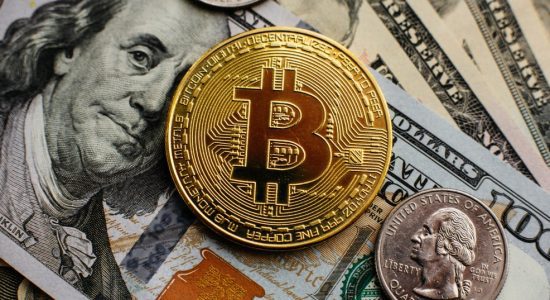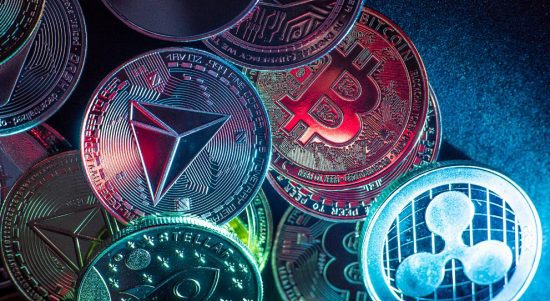
Cryptocurrency in the Middle East – A New Frontier
The shifting sands of the global financial terrain are leading us into a new era where digital currencies are playing a pivotal role. Far from being just a buzzword, cryptocurrencies like Bitcoin have started to significantly influence economic frameworks worldwide.
Particularly captivating is the BTC to USD price, which stands as a testament to cryptocurrency’s burgeoning acceptance and its substantial impact on worldwide financial perspectives.
This evolving landscape has garnered considerable attention in the Middle East, where traditional economic practices are now intersecting with digital innovation, creating a unique blend of opportunities and challenges.
How the Digital Marketplace Is Reshaping Financial Landscapes in the Middle East?

The Middle East’s journey into the realm of digital currencies represents a fascinating chapter in the region’s rich economic history. Here, the traditional marketplace, once dominated by physical exchanges and face-to-face transactions, is gradually embracing the world of digital currency trading.
Governments and businesses across the region are not only adopting but also adapting to these new technologies, implementing regulatory frameworks and exploring how cryptocurrencies can benefit their economies. This transition is marked by a growing awareness of digital currencies’ potential to streamline transactions, enhance financial inclusion and foster a more interconnected global economy.
With the unstoppable rise of the digital economy, the Middle East stands on the cusp of a profound transformation. The integration of cryptocurrency platforms is not just a technological upgrade but a reassessment of financial sovereignty and autonomy.
Entrepreneurs and investors in the region are increasingly drawn to the allure of digital assets, buoyed by the promise of high returns and a new level of control over their economic destiny. These platforms are not merely disrupting the status quo; they are rewriting the rules of financial engagement and opening the Middle East to a borderless economic future.
Unlocking the Potential of Digital Currencies in Emerging Markets
Emerging markets, with their rapid development and adaptation, offer fertile ground for the adoption of digital currencies. The Middle East has exhibited a keen interest in harnessing the power of blockchain and cryptocurrencies to advance their economic standing. These technologies promise to level the playing field, providing access to global markets and financial services for previously underserved populations.
Challenges such as accessibility, security and a lack of widespread understanding remain. However, through education and carefully crafted regulatory measures, several success stories have already emerged, showcasing the profound impact digital currencies can have on developing economies.
In countries where financial infrastructure is developing, the leap into digital currencies could bypass traditional banking hurdles, creating a ‘leapfrog’ effect. The Middle East, with its strategic position and penchant for technological leapfrogging, stands to gain immensely from this transition.

As digital wallets become more prevalent than bank accounts in some regions, the untapped potential of cryptocurrency as a means for everyday transactions and savings is becoming increasingly evident. The resulting financial empowerment of individuals and businesses could usher in an era of unprecedented economic growth and stability.
The Journey From Traditional Trading to Digital Currency Platforms
Tracing back to the bustling souks that defined trade in the Middle East, the region’s market dynamics have been transformed by the advent of digital currency exchanges. This evolution from physical to digital trading platforms reflects a broader global trend toward digitalisation but carries unique implications for the Middle East.
These platforms offer streamlined, secure, and borderless transactions, enabling the region to connect with international markets like never before. The integration of such technology propels economic activities into a new dimension, fostering growth and innovation across various sectors.
The Role of Major Cryptocurrency Exchanges in Fostering Global Financial Inclusion
In a world where access to basic financial services remains a hurdle for many, cryptocurrency exchanges stand as beacons of hope. By eliminating traditional barriers to finance, these platforms offer a gateway to economic participation for people around the globe, including those in the Middle East.

Beyond just facilitating transactions, leading exchanges are committed to user education and implementing robust security measures, ensuring that more people can safely navigate the world of digital currencies. This inclusive approach is helping to democratise finance, making it more accessible and equitable for all.
Bridging the Gap: Integrating Digital Currencies Into the Middle Eastern Economy
The journey towards full integration of digital currencies within the Middle Eastern economy is ongoing. While there’s undeniable enthusiasm for the benefits these currencies can bring, the path forward involves careful navigation.
Governments, financial institutions, and businesses must collaborate to create an environment where digital currencies can thrive. This includes establishing clear regulations, building infrastructure, and fostering a culture of innovation. As these efforts progress, digital currencies are set to play a more prominent role in the region’s economic landscape, potentially transforming various sectors and enhancing the Middle East’s position in the global economy.
As we look towards the future, the significance of metrics like the BTC to USD price will undoubtedly continue to capture the attention of investors and policymakers alike. However, the real story lies in the transformative potential of digital currencies to redefine the economic fabric of the Middle East and beyond.
By embracing this digital revolution, the region is poised to unlock new opportunities for growth, inclusivity, and global integration, charting a course toward a more prosperous and interconnected world.












